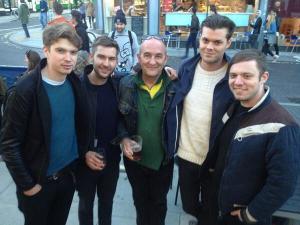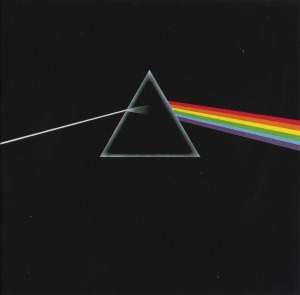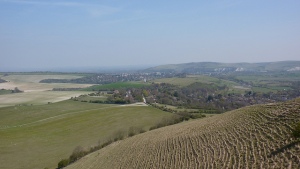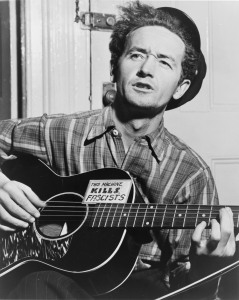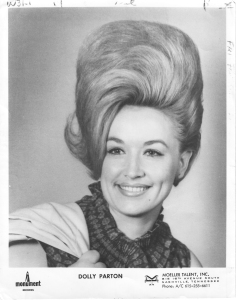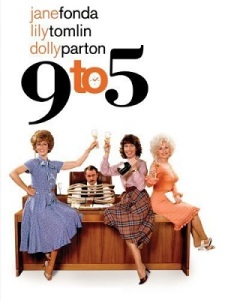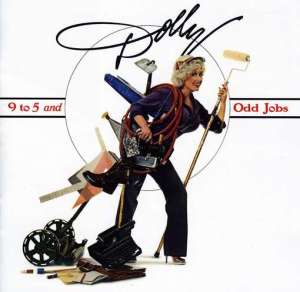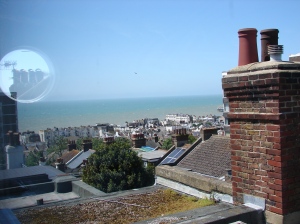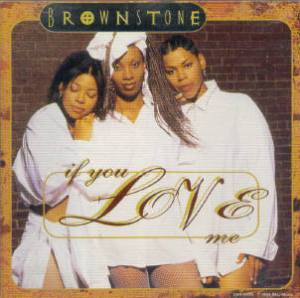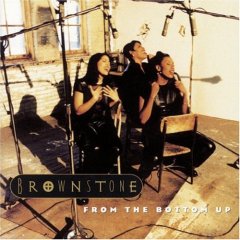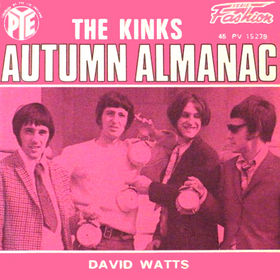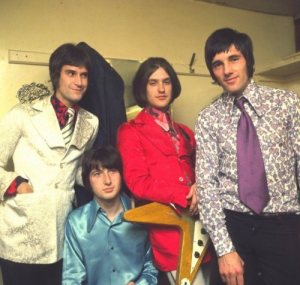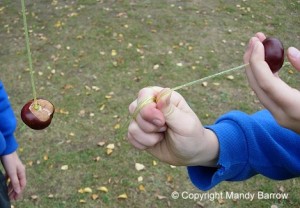
My Girls – Animal Collective
…I don’t mean to seem like I care about material things
like my social status
I just want four walls and adobe slabs for my girls…
Just a beautiful song – from Animal Collective’s 8th LP Merriweather Post Pavilion (named after a real place in Maryland) which has many fine moments, and was for me, the best album of 2009, although looking back at my music, it wasn’t a vintage year by any means. Funny how that happens. We had Cesaria Evora (see my pop life #14), Drake, Laura Marling and Duckworth Lewis Method, we had Jay-Z and Alicia Keys’ ‘Empire State Of Mind’ and Dizzy Rascal’s ‘Bonkers’, we had Fever Ray, Dirty Projectors, Tinariwen and critical darlings the XX who did nothing for me. I have got other stuff from 2009 to post, but it was thin stuff on the whole, or to be diplomatic…it was a transitional period shall we say…
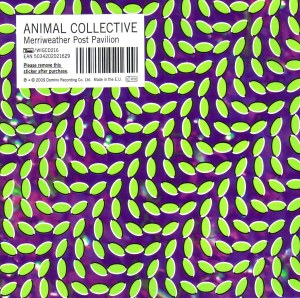
Animal Collective in 2008-9 comprised of Panda Bear (Noah Lennox), Avey Tare (David Portner), and Geologist (Brian Weitz), all on keyboards and eletronica. Guitarist Deakin (Josh Dibb) had taken a sabbatical from the band at this point, and there is no guitar on the LP.

This song would have stood out in any year – the strange time signature, soulful vocals, unusual melody and honest lyrics – about the reasonable ambition of providing your family with a home . The way the economies of America and Europe are at the moment, the way the music business has shrunk since the internet stole the music, musicians can no longer earn enough money to pay a mortgage sadly. I’m talking about established musicians like Animal Collective or Everything Everything, people who’ve been doing it for years, been in magazines, on TV, released LPs. They can’t afford to buy a house.
I was a part-time musician while I lived in Brighton and all the musicians I know there work really hard for very little financial reward. I’ve sat in a pub and played piano for £40, belting out your favourite songs while the hubbub vibrates around you. Background music for midweek drinkers. It’s one of the best things about Brighton, the amount of free live music there, reminding me of Boulder, Colorado or Austin, Texas, live music pouring from every bar door. Even when my band, the mighty Brighton Beach Boys, played a “proper gig”, eg Shoreham Ropetackle or Worthing Pier, we’d get £100 each max. That’s just how it is. When I saw the Mingus Big Band in New York the other week and got chatting to the alto player, they were on the same money too. A hit single used to be a way to supplement all the live income, but not any more. It’s just not enough. 3 hit singles, 4 and 5 and an album – well maybe. Even David Bowie’s last album only sold 700,000 copies, apparently. The record companies ripped us off for so long though. The CD era was the worst, they only cost $2 to make maximum, they were charging £17 at one point. There’s a guy in the North Laine selling CDs for £5 each, clearly he’s making a profit, why were we paying so much in the 1990s?

But plus ca change. People don’t decide to play music, or become actors for the huge earnings. But think twice before you rip that next song?
2009 was also the year I started to participate in Readers Recommend, part of the GuardianMusic online community. This has been running since 2005 and was initiated by journalist and writer Dorian Lynskey. There is a new topic every week – the first week was Songs About Change. The idea is that readers of the column suggest songs they like for a final playlist to be compiled and printed a week later. Dorian’s first playlist included Sam Cooke, Notorious BIG, The Who and Muse. The column has now been running for over 14 years. I joined in that January in 2009 when I stumbled across it online, as I guess most people do. Songs about Anti-Love was the topic and I suggested Bessie Smith’s version of Careless Love. By that point Maddy Costa had taken the chair and she chose Bessie for her playlist. I was hooked.
I’ve been playing it off and on for the last six years. The playlist compiler has become known as the “Guru” and I have taken the chair myself on a number of occasions, now that the community is democratic and volunteers from the readership are encouraged to put their names forward. It’s quite a task, to listen to everyone’s songs, and choose a dozen that will illuminate the topic. I have begun to prefer the more musical topics (such as songs with great middle eights, or songs with falsetto singing), over the plainly lyrical topics. The game isn’t just about scoring A-listers, although it is competitive. It’s about discovering new music, and being diplomatic about other people’s taste in music. Very rare on the internet! Which is why we keep coming back I guess. All the information is available at The Marconium, a compendium of all of the Readers Recommend columns and playlists in handy format, compiled by one of our brethren Marconius7, who resides in British Columbia. It’s pretty addictive, people flounce off every now and again, sometimes with no fanfare, I’ve done it myself quite a few times, but I’ve always come back, because, well I’m addicted to music, and it’s generally good fun.
This last weekend I have been the Guru again – for the seventh time I think – the topic set by Peter Kimpton, our current Guru of Gurus (ie a paid writer at The Guardian!) was Songs About Ambition. Many many great songs were suggested, and as ever, I had to whittle them down to 12 A-listers. My Girls made it, naturally. The final column can be found here : Ambition Playlist!
*
January 2009 was also when Barack Obama was elected President Of The USA for the first time. A true landmark moment. Why? Because white Americans had voted for a black American, that’s why. It was the start of a healing process which is going to take longer than two terms. As I write Baltimore is going up in flames for all the usual reasons – neglect, loss of jobs, marginalisation, leave the cops to sort it out.
*
And now I find, sitting in Clinton Hill, Brooklyn on Wednesday April 29th 2015 with my two cats Boy and Roxy, that I am missing My Girls. My #1 girl is in Dublin tonight. My wife has gone to see our dear friend Catherine Walker in Hedda Gabler at the Abbey Theatre before celebrating her sister Lucy’s birthday and seeing her parents. My #2 girl Skye, daughter of Tom and Scarlett has just turned 9 months old, Jenny will get to see her on this trip but I’m missing her baby year. My #3 girl Delilah-Rose, daughter of Millie is my god-daughter and aged 7, also lives in Brighton and I miss baby-sitting her, picking her up from school, taking her to school and everything else. Here I am in Denver, sipping California wine, and I’ve got all night to remember them, I’m in a Lone Star state of mind. Kind of thing.
My Girls – Animal Collective:

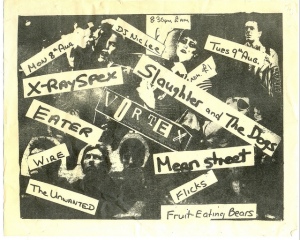















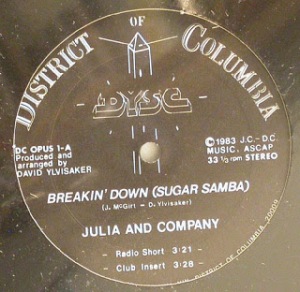
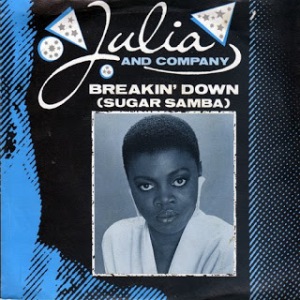 Knowing nothing about this group until recently when I learned that Julia Nixon had replaced Jennifer Holiday in Dreamgirls on Broadway, and that after this cracking single in 1984 and the follow-up I’m So Happy, she finally released her first solo LP in 2007 some 23 years later.
Knowing nothing about this group until recently when I learned that Julia Nixon had replaced Jennifer Holiday in Dreamgirls on Broadway, and that after this cracking single in 1984 and the follow-up I’m So Happy, she finally released her first solo LP in 2007 some 23 years later.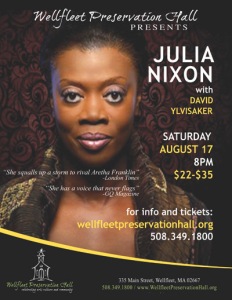

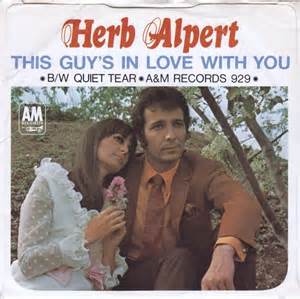
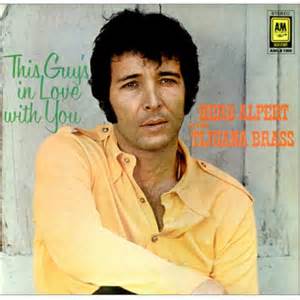
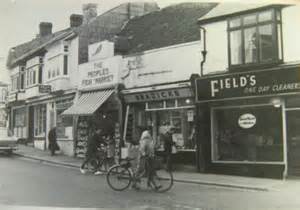

 bought the LP immediately it came out a few months later in 2010 and wasn’t disappointed by my own high hopes – Man Alive is, for me the single greatest record of the 21st century so far, a record that is so breathtakingly original that to compare it with Amy Winehouse’s Back To Black – great though that is – is a pointless comparison. The LP that comes close is Kanye West’s Yeezus for musical boldness and pointers to the future, and of course there’s been interesting electronica from Jon Hopkins and Burial, Four Tet, J. Dilla and Flying Lotus, some beautiful music from Sigur Ros, Arcade Fire, John Legend & Vampire Weekend and many more indeed, insert your favourite here, but Man Alive is head and shoulders more inventive more original and more exciting a piece of work than any of the above. Apart from maybe Yeezus….
bought the LP immediately it came out a few months later in 2010 and wasn’t disappointed by my own high hopes – Man Alive is, for me the single greatest record of the 21st century so far, a record that is so breathtakingly original that to compare it with Amy Winehouse’s Back To Black – great though that is – is a pointless comparison. The LP that comes close is Kanye West’s Yeezus for musical boldness and pointers to the future, and of course there’s been interesting electronica from Jon Hopkins and Burial, Four Tet, J. Dilla and Flying Lotus, some beautiful music from Sigur Ros, Arcade Fire, John Legend & Vampire Weekend and many more indeed, insert your favourite here, but Man Alive is head and shoulders more inventive more original and more exciting a piece of work than any of the above. Apart from maybe Yeezus…. It was a great collective effort which culminated in election day – I spent time outside three different polling booths, then knocked people up, getting our vote out, then once the polls closed fielding some calls as local Press Officer – one from ITN News – and I was at home. I said “we’re quietly confident” – I just made it up – and that became the tag-line for the night on the TV. We had no idea if we’d won. I went down to the count at The Brighton Centre at around midnight, place was buzzing, I had a Press Pass and talked to all the journalists there about IF Caroline wins, who she will
It was a great collective effort which culminated in election day – I spent time outside three different polling booths, then knocked people up, getting our vote out, then once the polls closed fielding some calls as local Press Officer – one from ITN News – and I was at home. I said “we’re quietly confident” – I just made it up – and that became the tag-line for the night on the TV. We had no idea if we’d won. I went down to the count at The Brighton Centre at around midnight, place was buzzing, I had a Press Pass and talked to all the journalists there about IF Caroline wins, who she will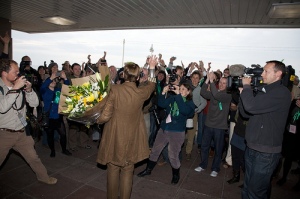 talk to and for how long, then a Press Conference on the top floor, then we waited and watched. It took forever – til dawn, but then, the count, the result, the release of tension, victory at 7am in the morning. I ran down to meet Caroline at the door of the counting room and three of us with passes escorted her up the stairs, through the throng of media, cameras in our faces, flashbulbs popping, it was the most rock-star moment I’ve ever had frankly and it was a political victory. Extraordinary. Upstairs the press interviews, the TV excitement, then afterwards the Green gang on the pavement outside, the celebration and then the real work began.
talk to and for how long, then a Press Conference on the top floor, then we waited and watched. It took forever – til dawn, but then, the count, the result, the release of tension, victory at 7am in the morning. I ran down to meet Caroline at the door of the counting room and three of us with passes escorted her up the stairs, through the throng of media, cameras in our faces, flashbulbs popping, it was the most rock-star moment I’ve ever had frankly and it was a political victory. Extraordinary. Upstairs the press interviews, the TV excitement, then afterwards the Green gang on the pavement outside, the celebration and then the real work began.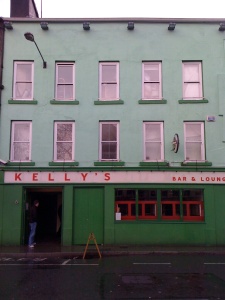 I was staying in the swish elegance of the G Hotel. A 15-minute walk took me into the pubs, the pubs the pubs of Galway. Are there better pubs than these? Can it be true? One after another they suck you in with their brightly coloured exteriors, their fiddle music and soft southern voices, their velvety pints of Guinness and piles of triangular cut sandwiches, free for drinkers. Dear Frank O Sullivan gave me the guided tour. More than once Galway reminded me of Brighton – the music scene is thriving, the people are laid-back and friendly, it’s artistically alive, racially and sexually mixed and international yet small and manageable. Brighton has more pubs per square mile than anywhere in the UK and more than once I heard it said that “Galway is the graveyard of ambition, the place is full of dreamers and drinkers…”
I was staying in the swish elegance of the G Hotel. A 15-minute walk took me into the pubs, the pubs the pubs of Galway. Are there better pubs than these? Can it be true? One after another they suck you in with their brightly coloured exteriors, their fiddle music and soft southern voices, their velvety pints of Guinness and piles of triangular cut sandwiches, free for drinkers. Dear Frank O Sullivan gave me the guided tour. More than once Galway reminded me of Brighton – the music scene is thriving, the people are laid-back and friendly, it’s artistically alive, racially and sexually mixed and international yet small and manageable. Brighton has more pubs per square mile than anywhere in the UK and more than once I heard it said that “Galway is the graveyard of ambition, the place is full of dreamers and drinkers…”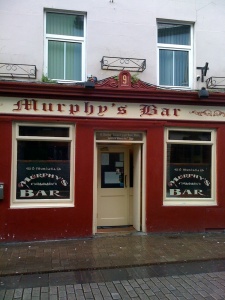 Perhaps I should mention too, that Brighton and Galway are places where people actually choose to live because they are great places, and The Graveyard Of Ambition is always said in Galway with an undercurrent of pride – they don’t want to be anywhere else. Balls to ambition. This is of course hugely tempting, but perhaps not quite yet. I did hear the universe nattering away eventually, for here I am in New York City having decided to shake things up a bit and escape from the satisfied life for a new experience. To seek out new life, new civilisations. To boldly go to where people are allowed to split an infinitive. Everything Everything spoke to that part of me that is always agitating, looking for change both without and within. They still speak to me.
Perhaps I should mention too, that Brighton and Galway are places where people actually choose to live because they are great places, and The Graveyard Of Ambition is always said in Galway with an undercurrent of pride – they don’t want to be anywhere else. Balls to ambition. This is of course hugely tempting, but perhaps not quite yet. I did hear the universe nattering away eventually, for here I am in New York City having decided to shake things up a bit and escape from the satisfied life for a new experience. To seek out new life, new civilisations. To boldly go to where people are allowed to split an infinitive. Everything Everything spoke to that part of me that is always agitating, looking for change both without and within. They still speak to me.
